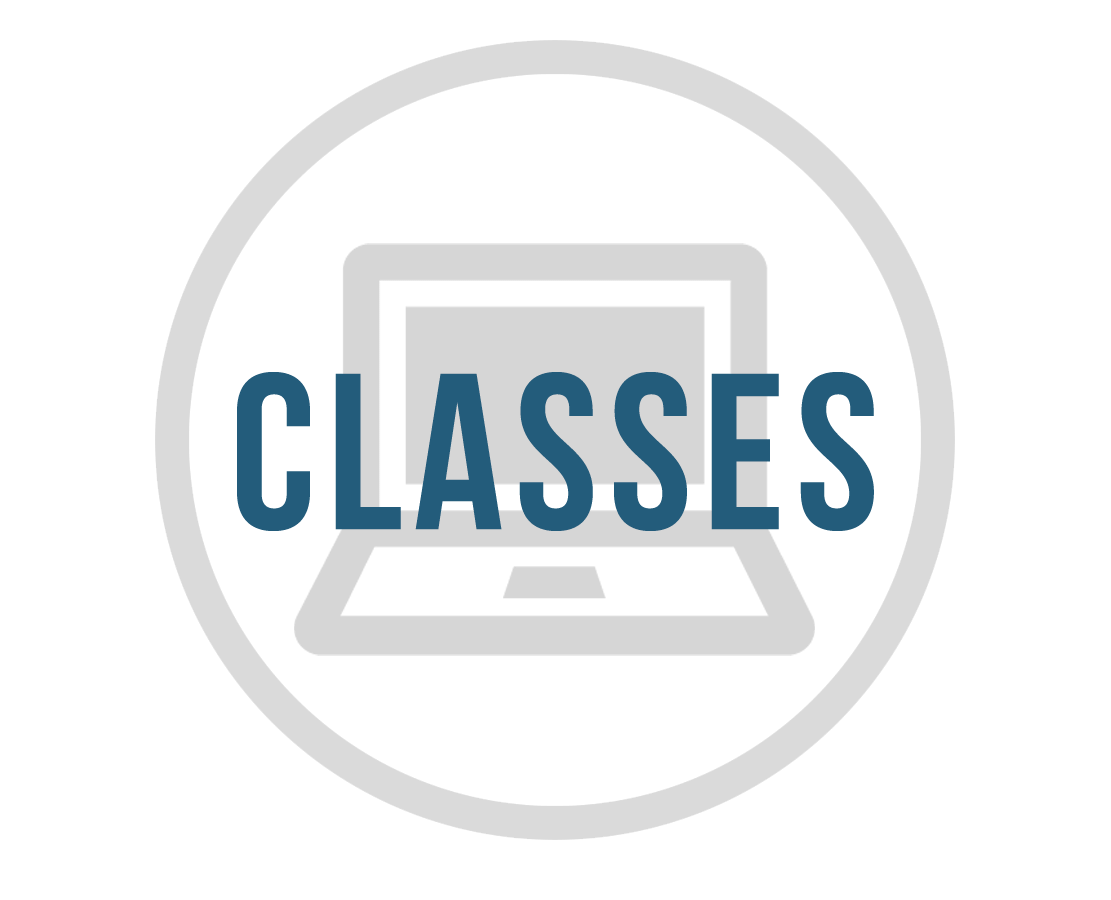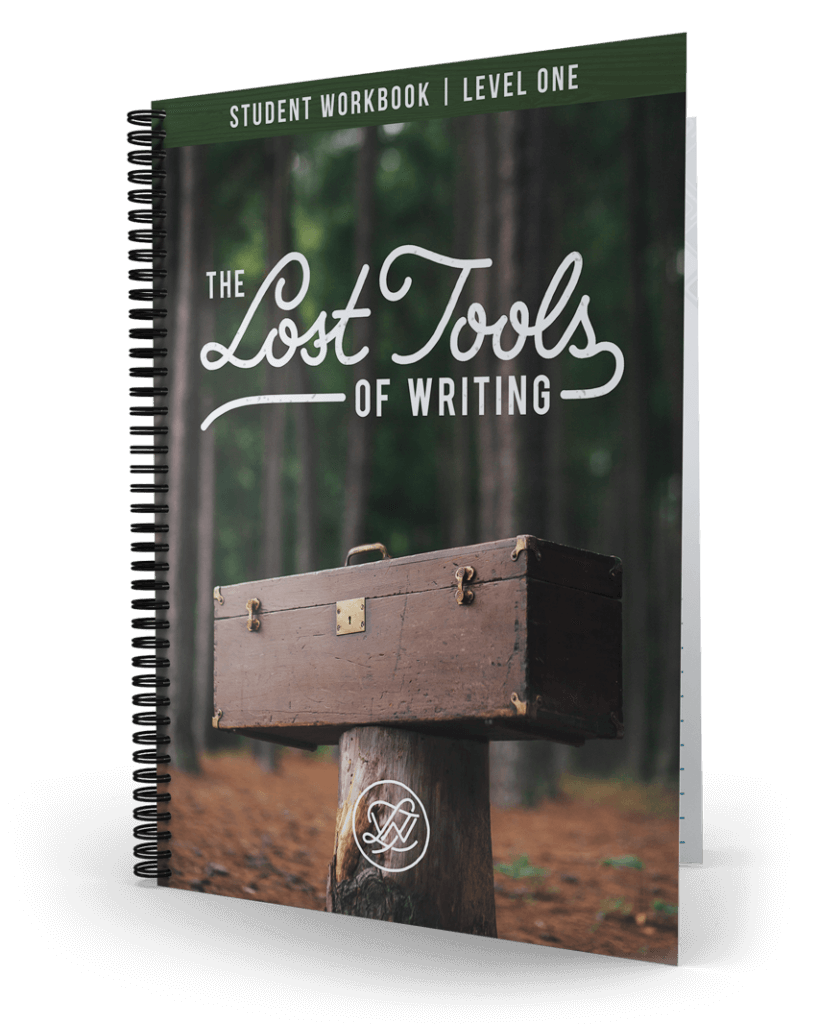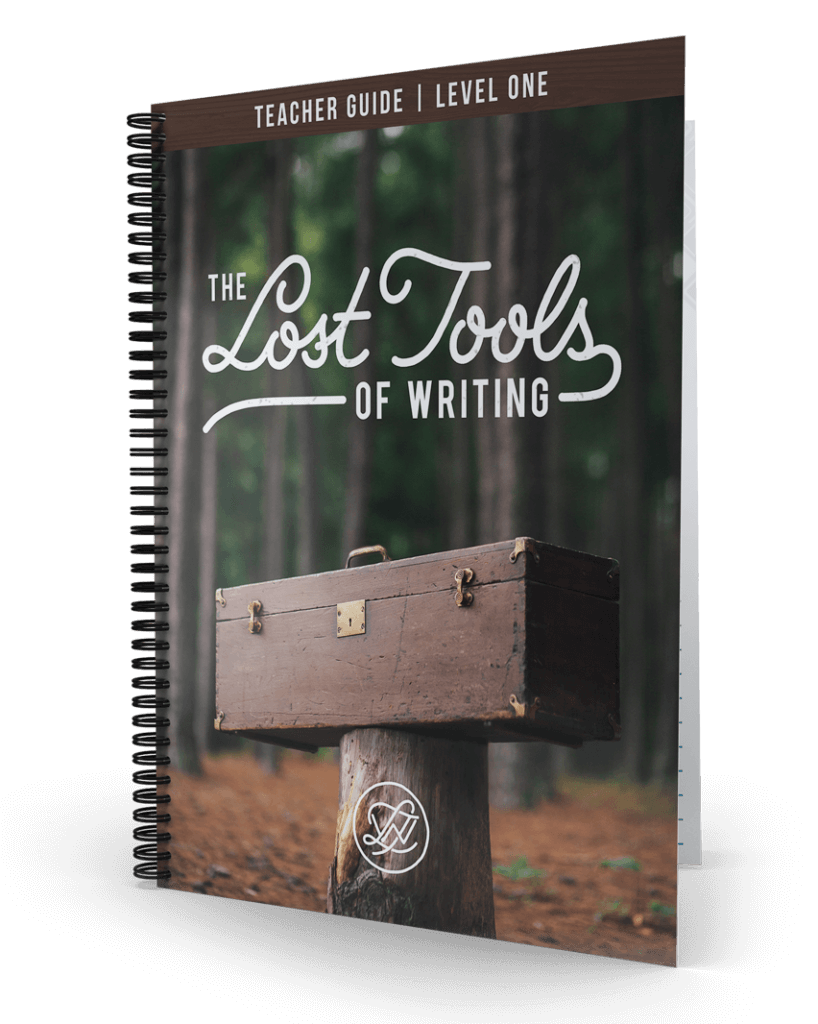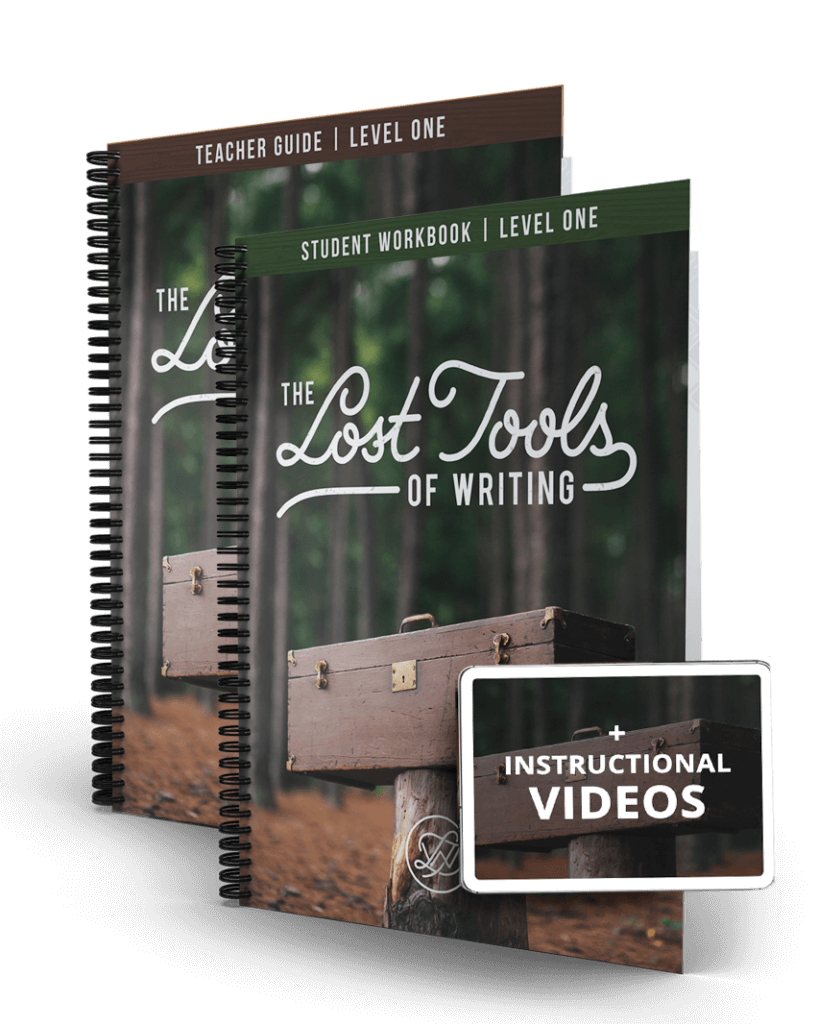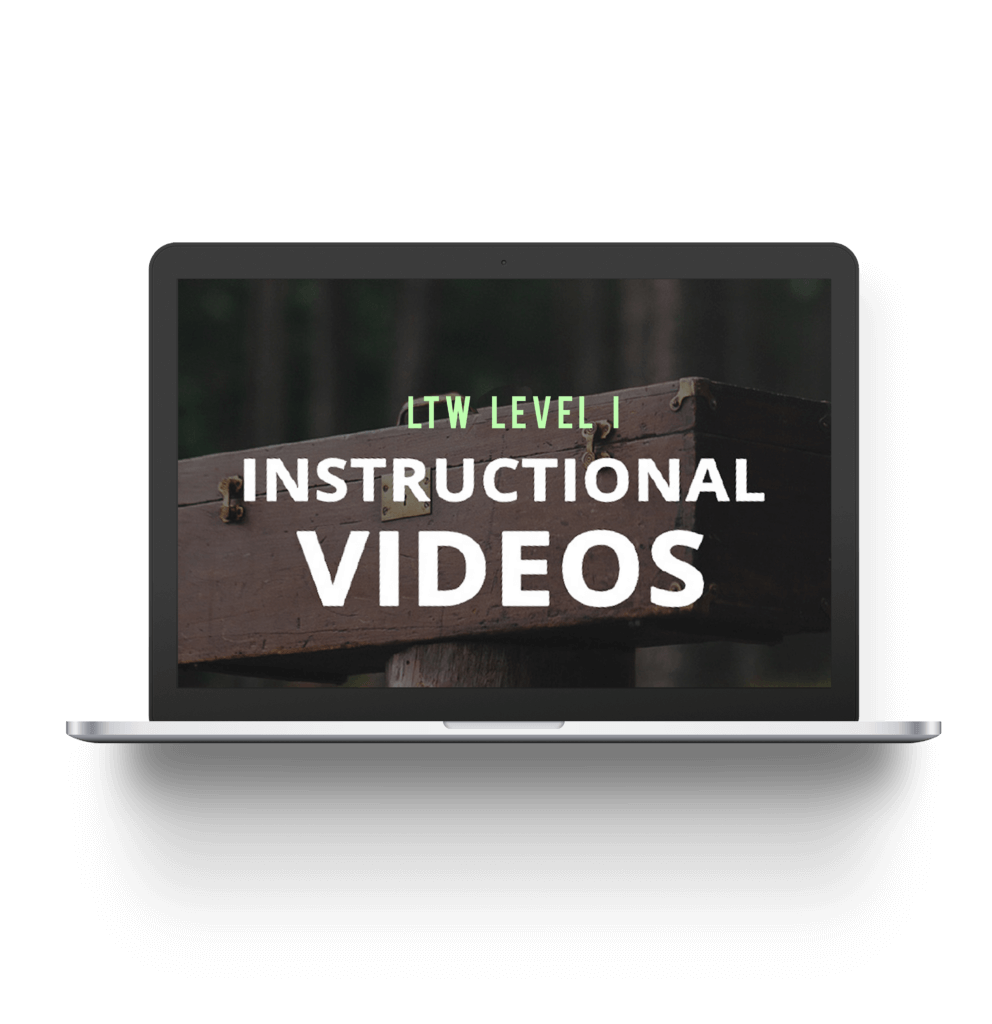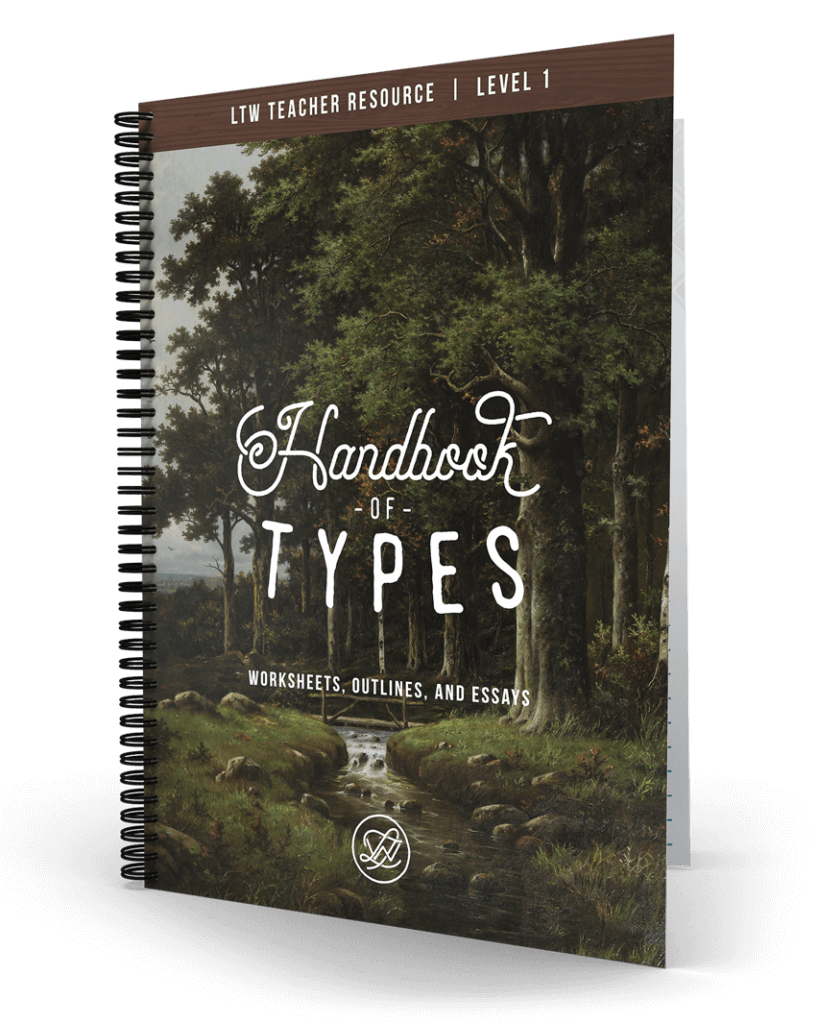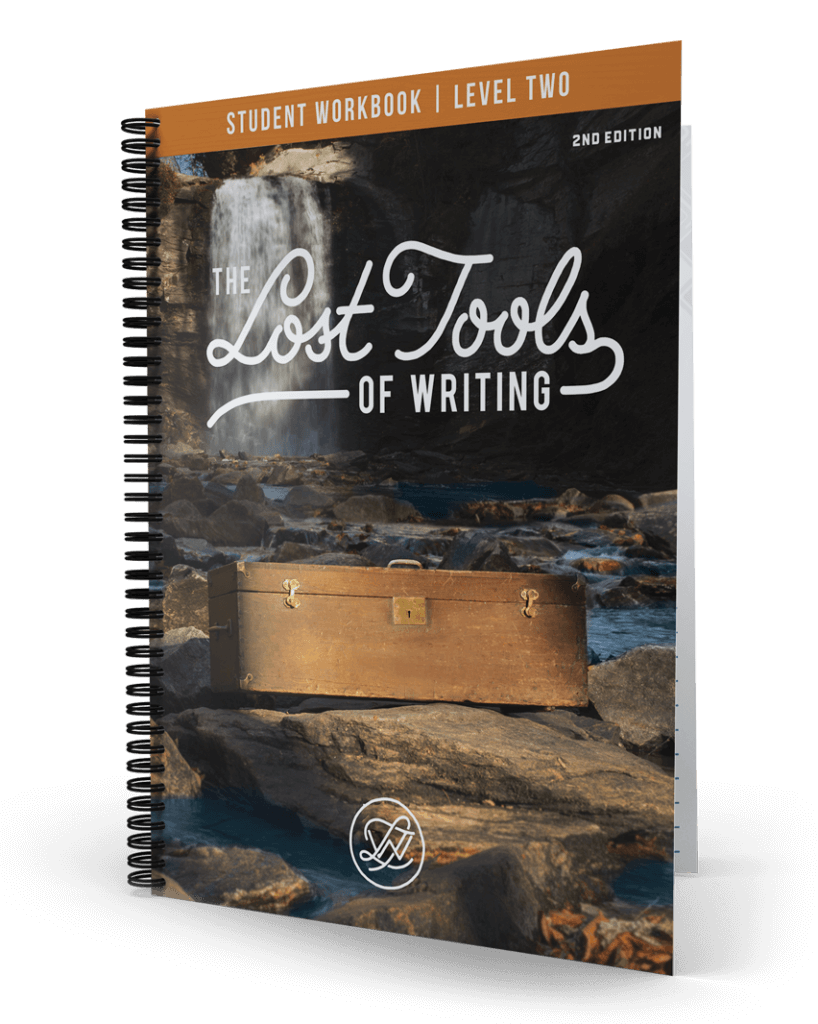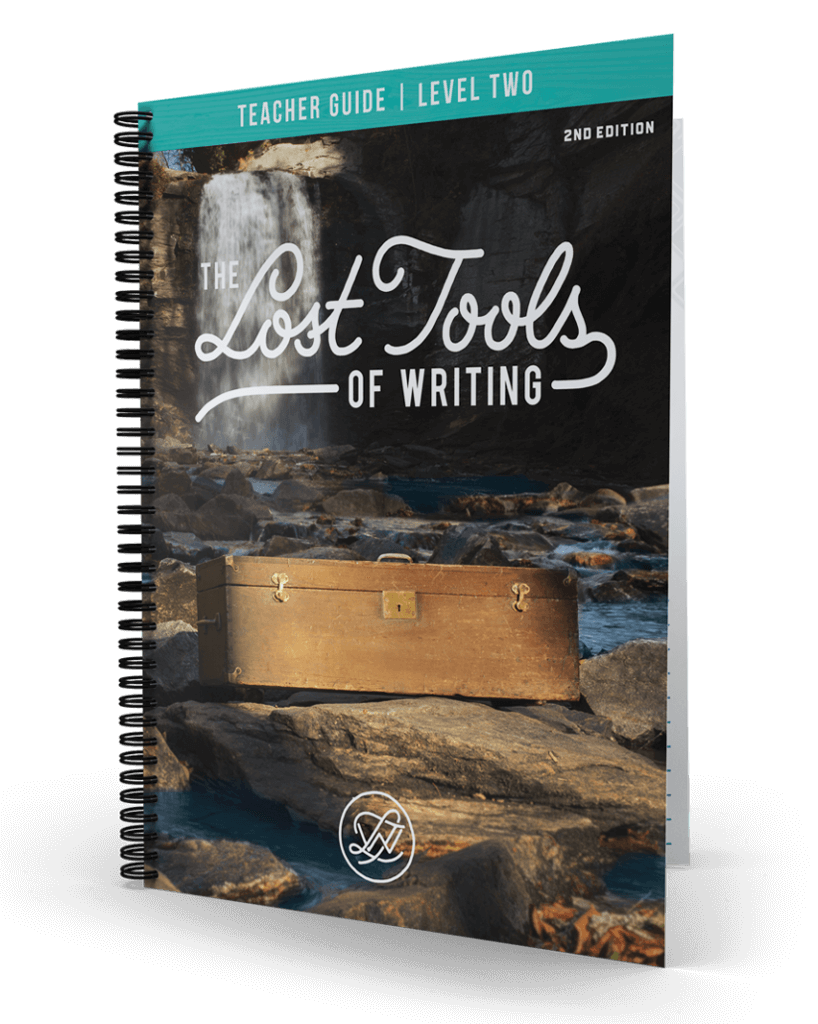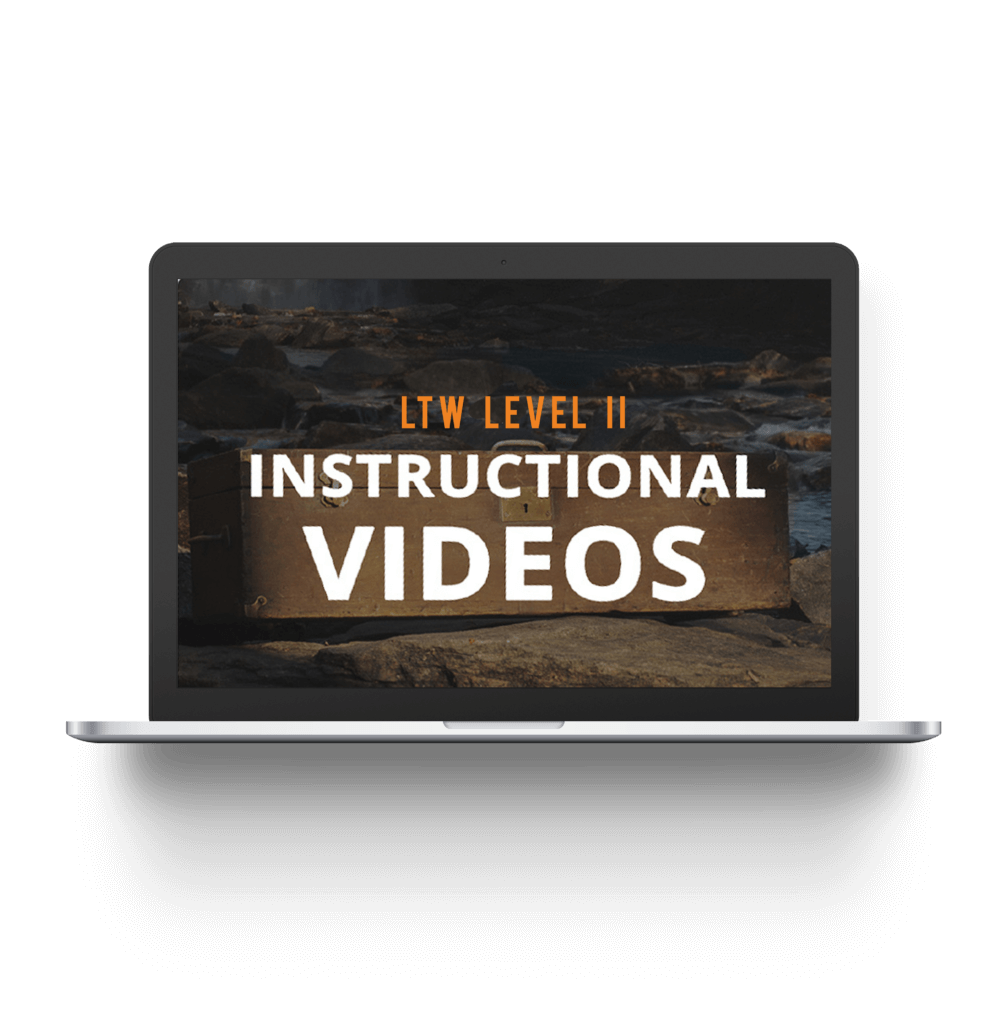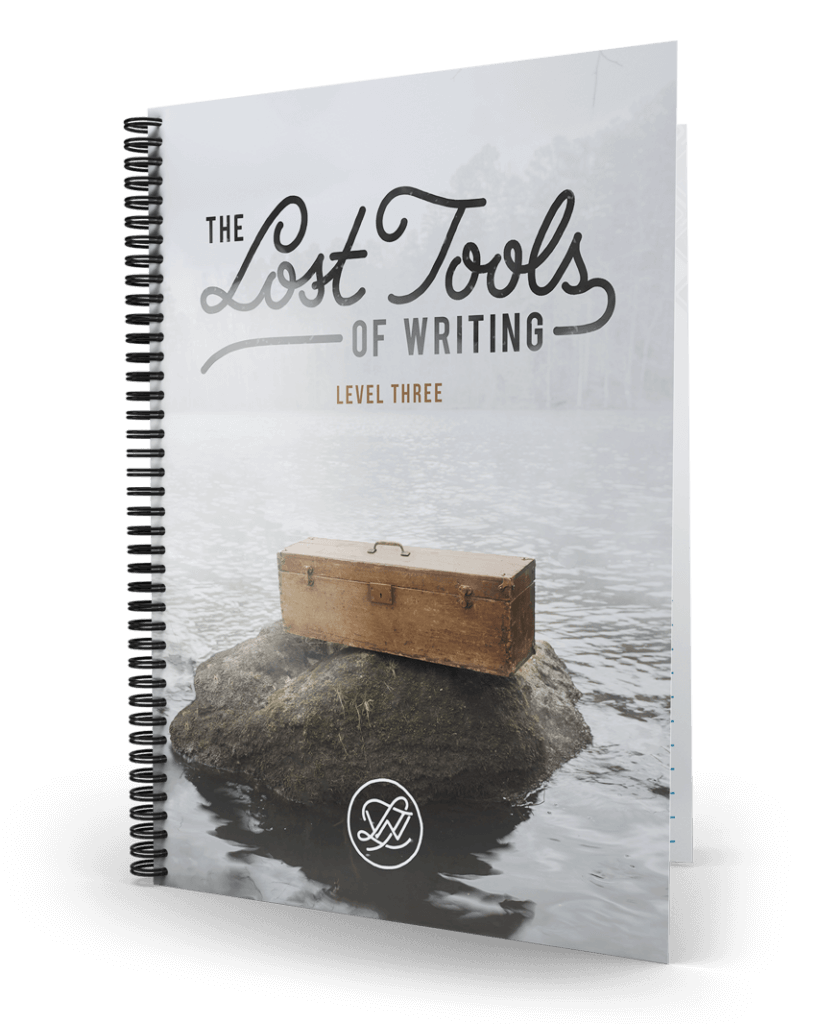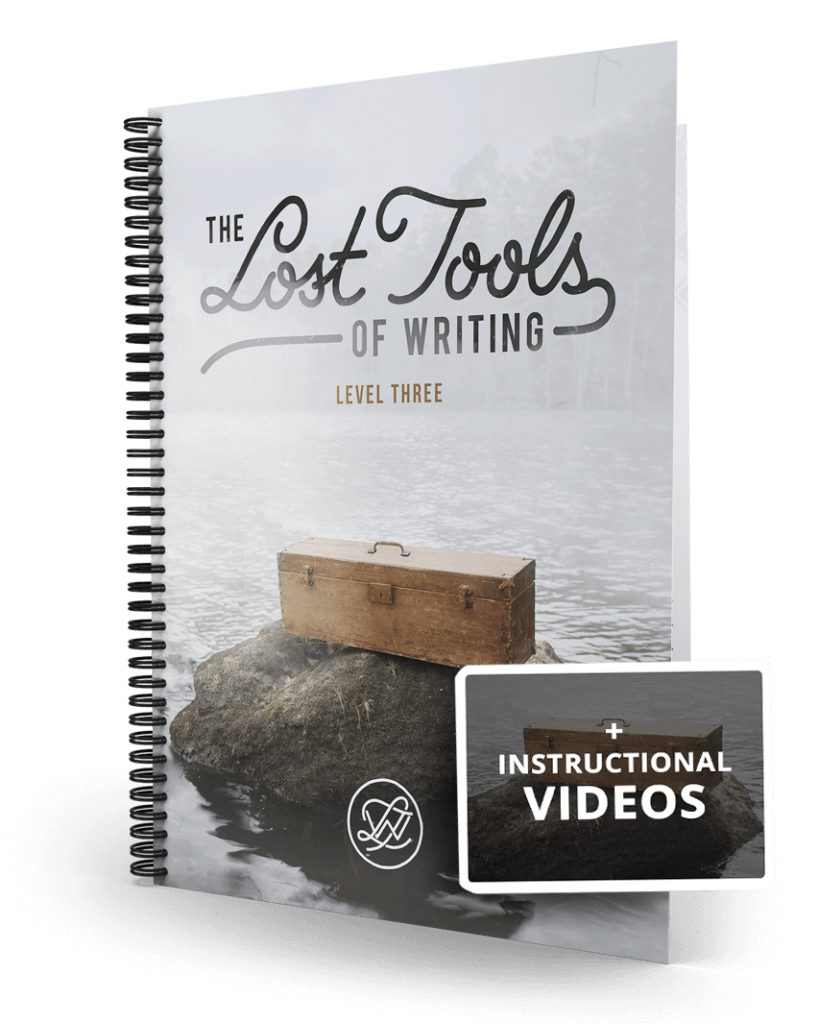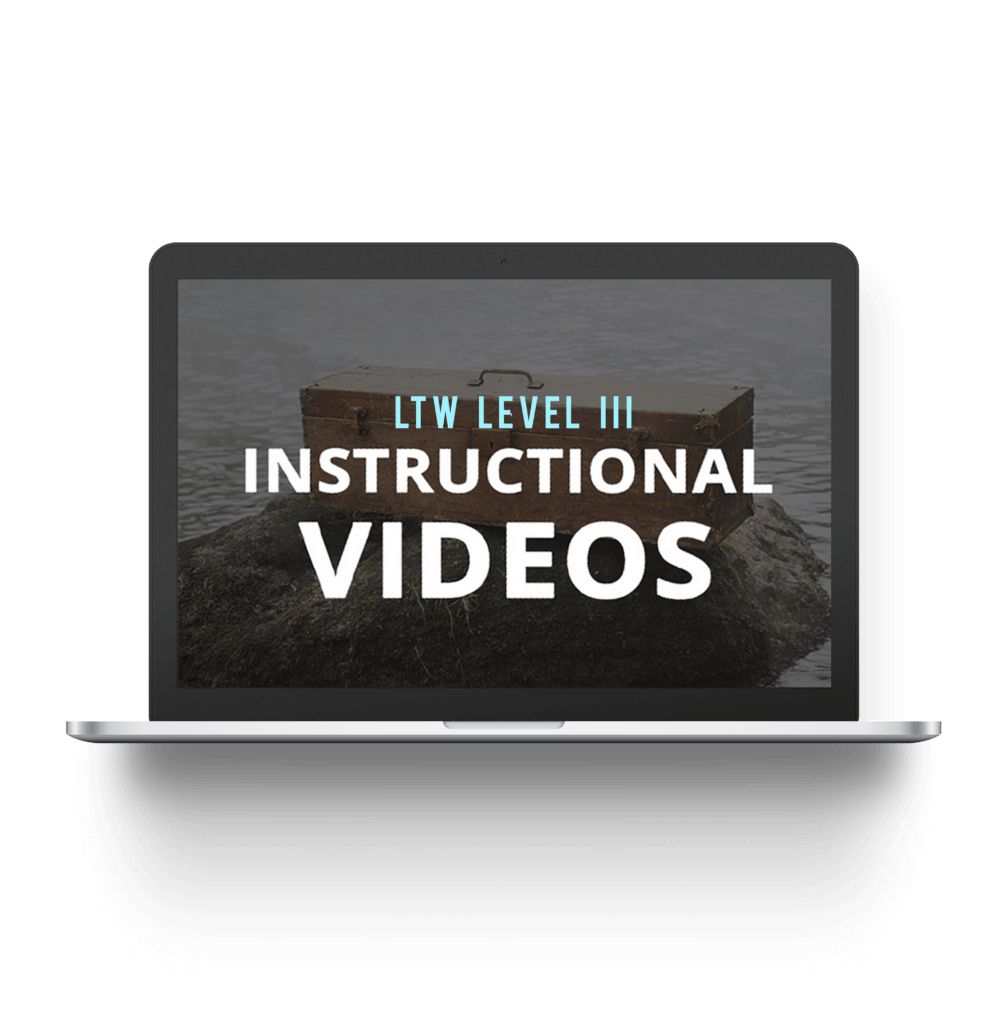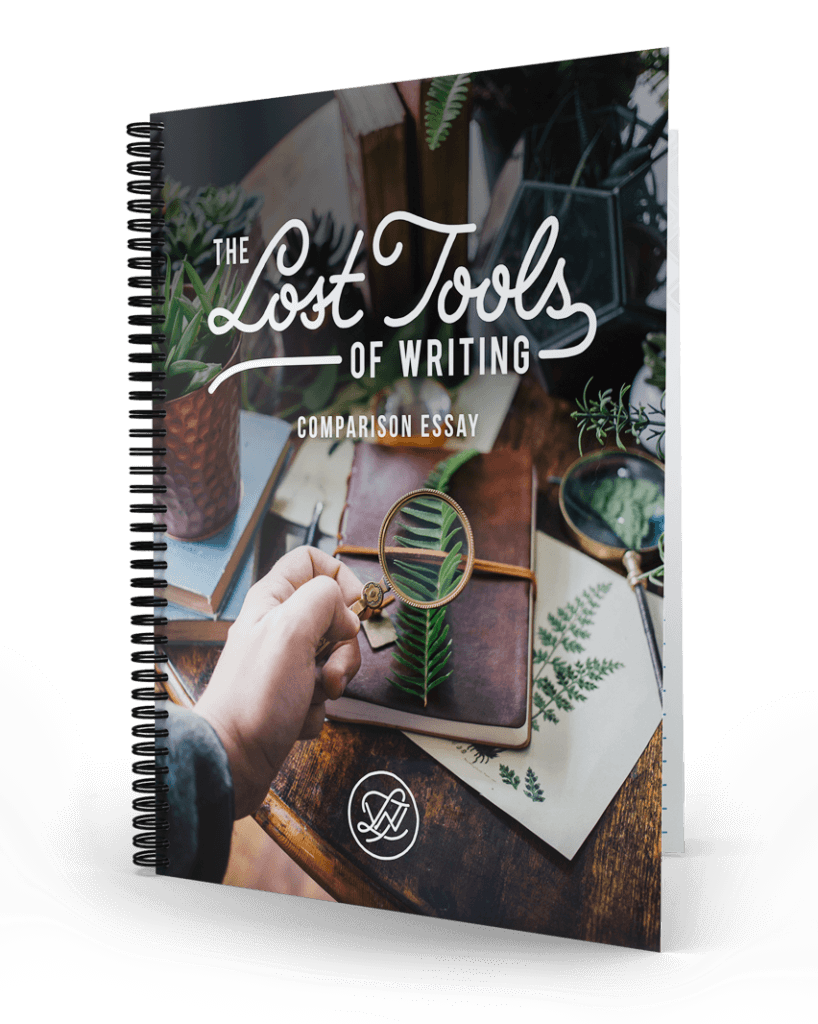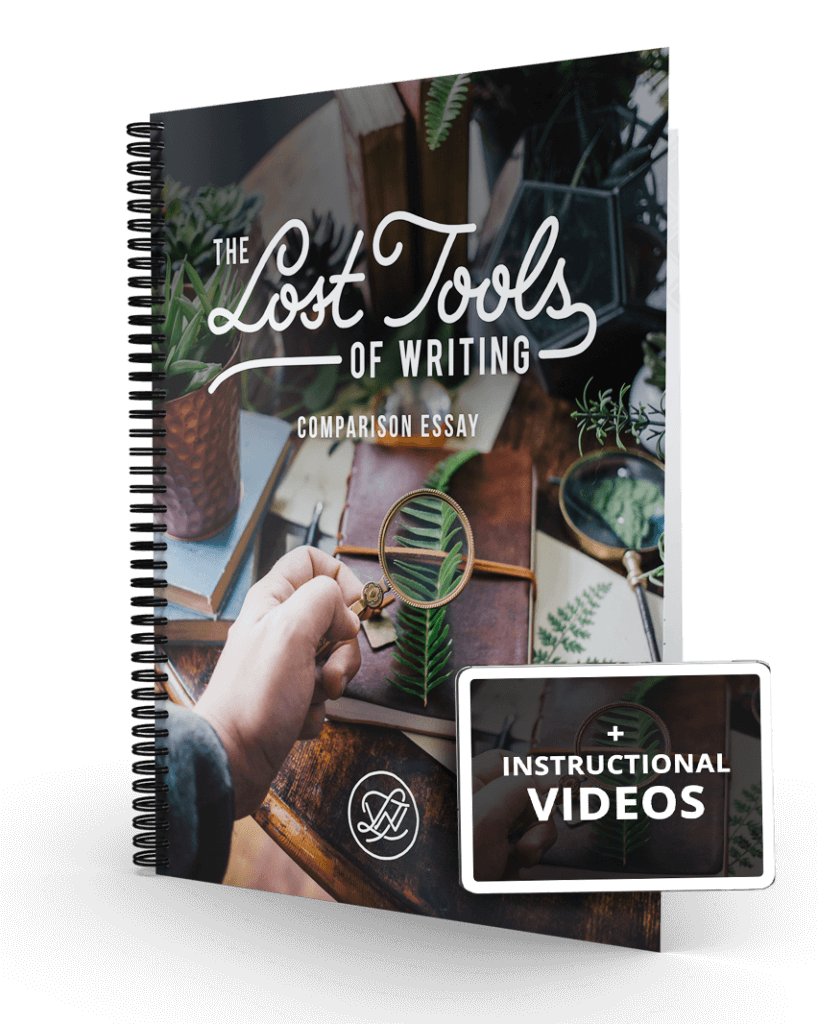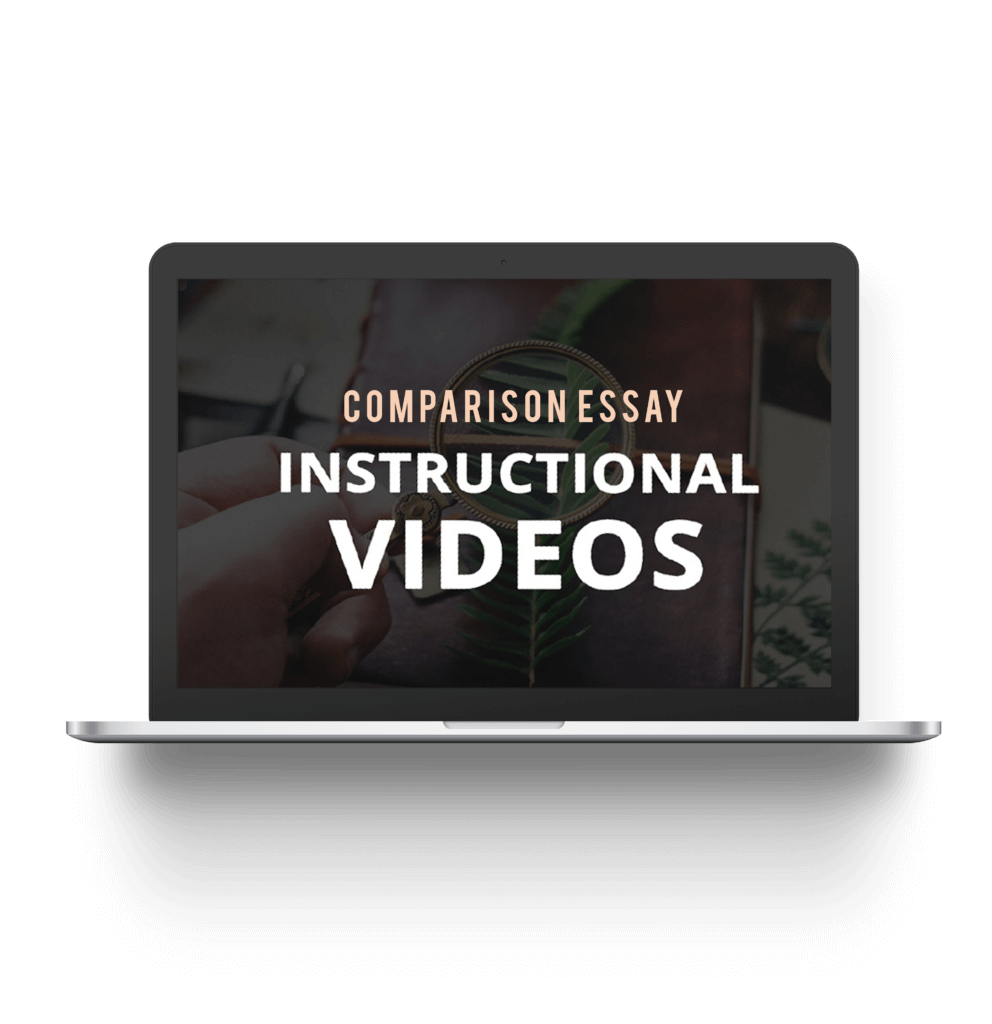Cultivate Thoughtful & Articulate Writers
Currently offering three levels, The Lost Tools of Writing is an ideal composition curriculum for students in seventh through twelfth grade who already have a relatively solid understanding of grammar and sentence structure and who have at least a rudimentary amount of writing experience – and, most importantly, who are ready to think for themselves.
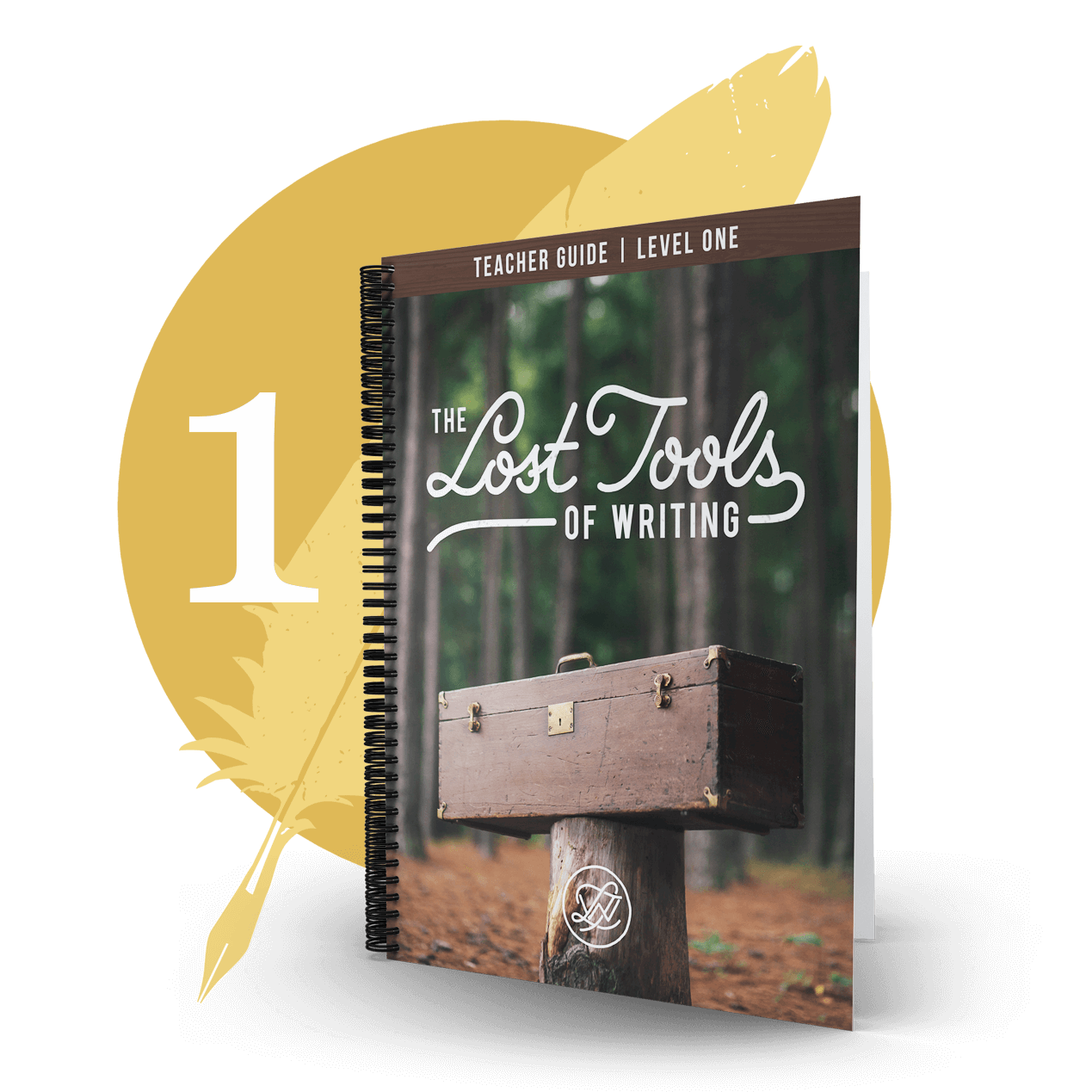
Skills Taught
WRITING: Basic Essay Writing • Schemes • Tropes • Editing • Exordium • Division • Narratio • Thesis • Proofs • Arguments • Refutation • Conclusion • Amplification
THINKING: Material Logic: Common Topics • Definition • Comparison • Circumstance • Testimony • Relationship • Formal Logic: Sorting
Lost Tools of Writing Level 1
Recommended for Age 12+
The Lost Tools of Writing, Level I is a one or two-year program (depending on the age of the student and the pace at which you wish to go), that covers primarily the persuasive essay.
Featuring eight essays and a review lesson, LTW I teaches a half dozen schemes and tropes as well as numerous skills and techniques for coming up with ideas.
Products
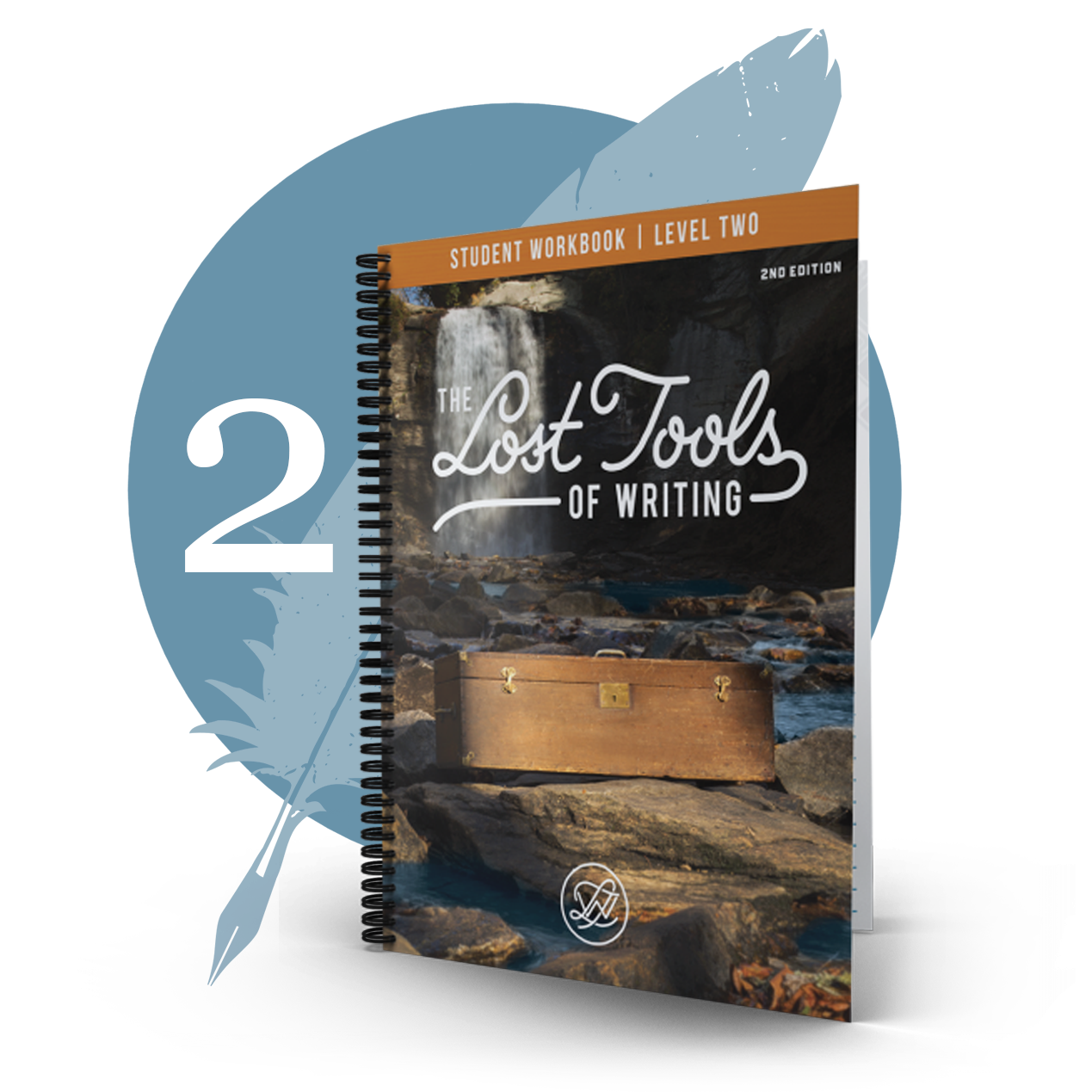
Skills Taught
WRITING: Additional schemes & Tropes • Compound & Complex Sentences • Further Amplification • New Exordia
THINKING: Material Logic: Special Topics: Justice • An Sit • Quid Sit • Quale Sit
Lost Tools of Writing Level 2
Recommended for anyone who has completed Level I.
In LTW II, you will continue your study of classical rhetoric by studying the judicial address, which refines the persuasive essay taught in LTW I. So just as the elements of LTW I build upon one another, so LTW II builds upon LTW I.
Through the eight lessons/addresses in LTW II, your students will work within the framework of the three canons, but each will be aimed at this new kind of address. This familiarity will empower you as a teacher and will provide confidence for your students.
Products
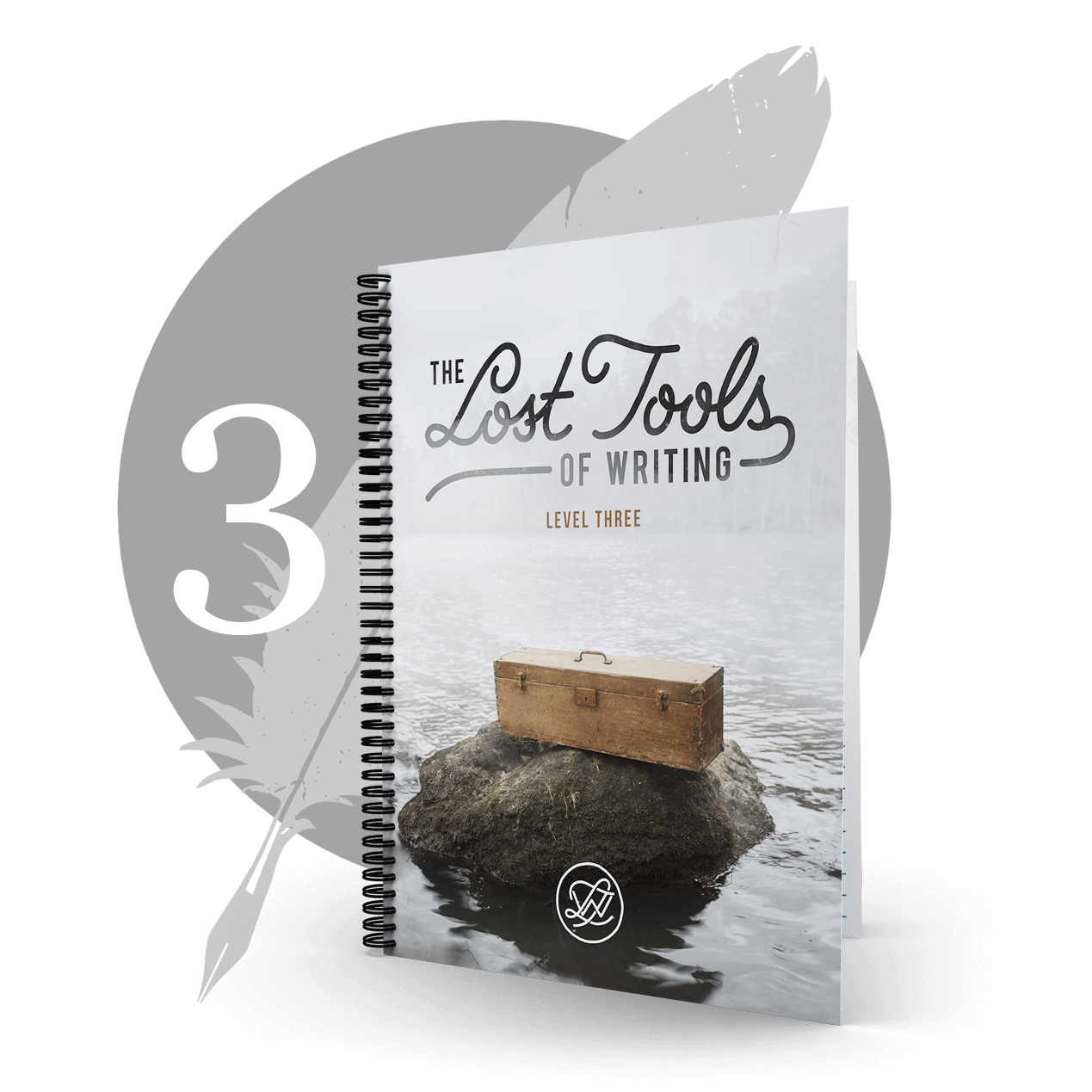
Skills Taught
WRITING: Additional Schemes & Tropes • Coherent & Cohesive Paragraphs
THINKING: Argument Evaluation • Formal & Material Logic: • Honor • Advantage • Sorites • Enthymeme • Epicheirema
Lost Tools of Writing Level 3
Recommended for anyone who has completed Level II.
The next stage on your journey to mastery of thought and communication is Level III, where you’ll solidify the foundations that you laid in LTW I and II, develop advanced writing skills, master additional forms of persuasive address, and even begin to practice tools you’ll use for the arts of verse and storytelling.
The heart of Level III is the deliberative address, the immediate purpose of which is to determine whether an action should be taken. The bigger purpose is to grow in wisdom and prudence by practicing making difficult decisions from which you can learn principles and habits of decision making for your own life and community.
When you write your deliberative address, you practice thinking imaginatively and strategically.
Through the eight lessons/addresses in LTW II, your students will work within the framework of the three canons, but each will be aimed at this new kind of address. This familiarity will empower you as a teacher and will provide confidence for your students.
Products
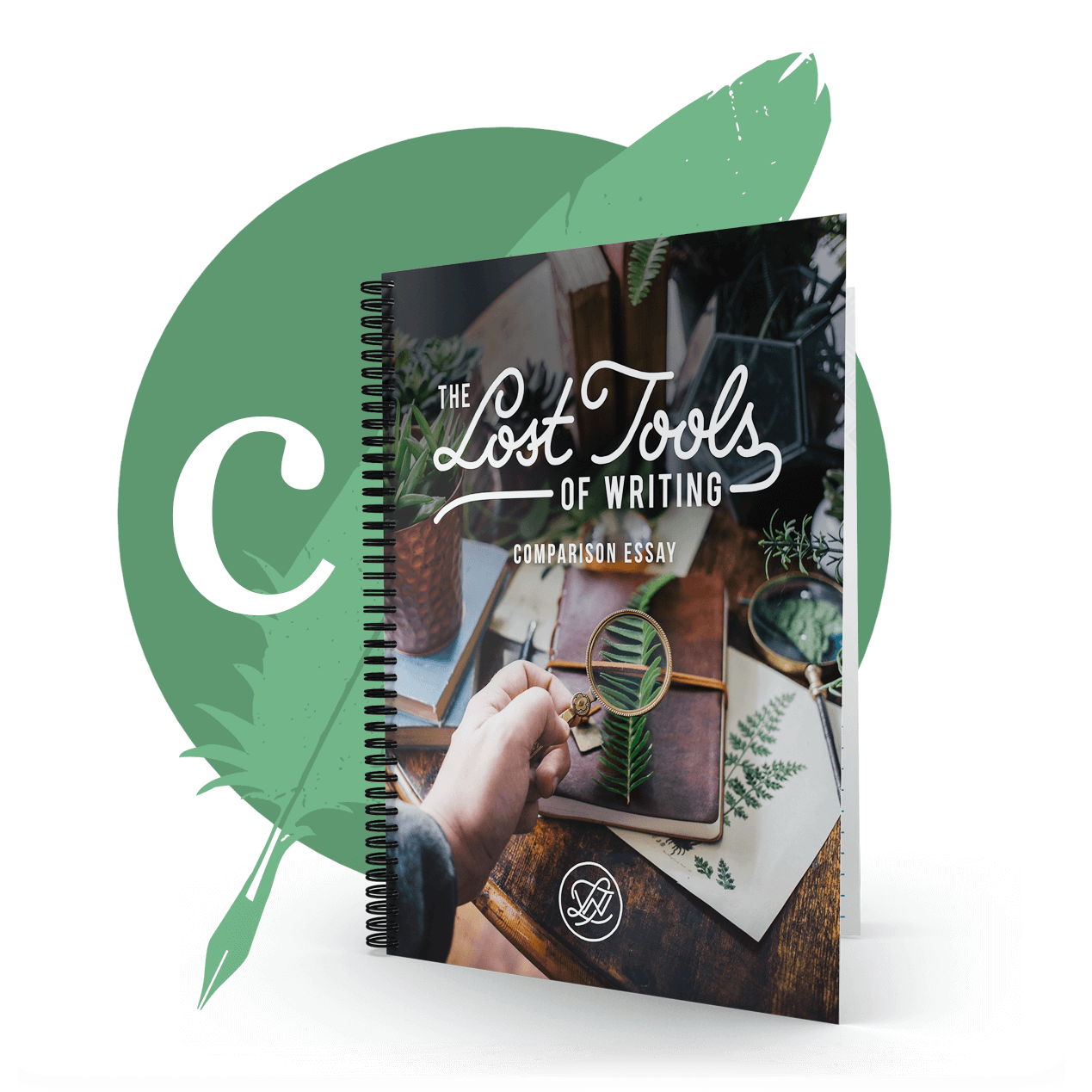
Skills Taught
WRITING: In Arrangement: new instruction for Narratio, plus thesis, proofs, exordium, amplification. In Elocution: metaphor, advanced metaphor, and extended metaphor
THINKING: Material logic: the topic of comparison in greater depth
Comparison Essays
Recommended for anyone who has completed Level I.
This semester-long program provides a way for students to gain more practice in foundational thinking skills plus practice in writing a different kind of essay. Through LTW: Comparison Essay, students will solidify the foundations laid in LTW I, develop deeper thinking skills, master an additional form of essay-writing, and delve more deeply into analogical thinking with different kinds of metaphor-writing.
The skills students gain through LTW: Comparison Essay extend beyond academics to life in the world, cultivating more refined and careful thinking about people, things, ideas, and their own decisions.
Products
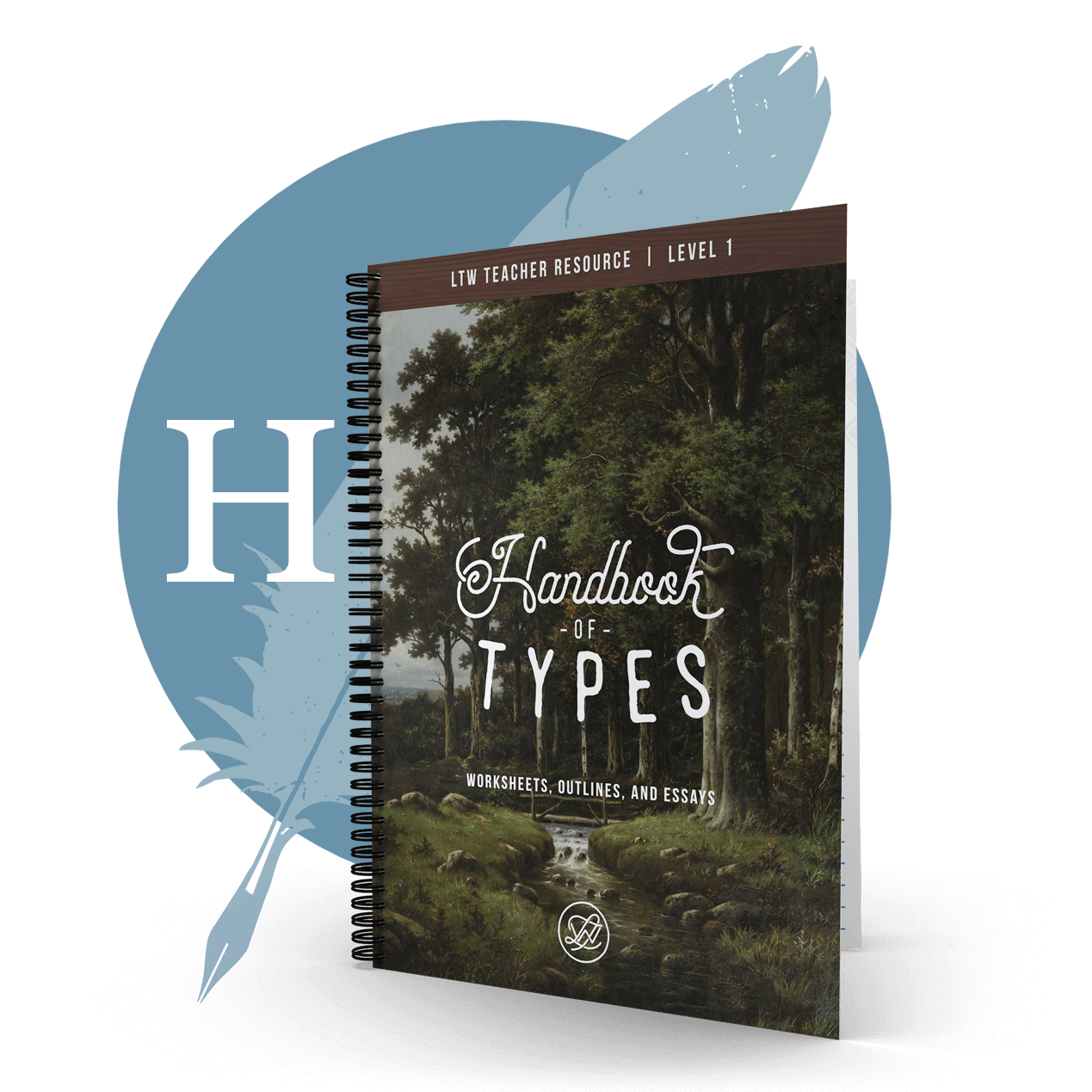
Products
Handbook of Types
Supplemental Resource for Level I
Offering dozens of additional examples of the content taught in The Lost Tools of Writing Level I, this handbook enables deeper understanding and richer contemplation of the three canons of classical rhetoric. Whether you are looking to enrich your own teaching or to empower your students, this book will help you take The Lost Tools of Writing to the next level in your classroom or homeschool.
Using three different stories, the Handbook of Types provides:
• Three types for every invention worksheet
• Three types for every arrangement worksheet
• Three student examples of every outline
• Examples from the stories for every scheme and trope
• Three examples for every elocution worksheet
• Three examples for every essay
My daughter has struggled with writing her whole life. YEARS of struggle for mother and child. She wrote two essays today, one by choice. I have never seen her put that many words on paper at once before. And never, ever, ever did I think I would see the day she would choose to write an essay over making a list! It feels like a miracle. LTW has my undying affection!”
Jessica J.
Watch the Introductory Lesson Video
Check out our Three Amigos series all about the Lost Tools of Writing!
The Three Amigos is our series hosted by Andrea Lipinski, Camille Hunt, and April Langan where they try to answer all of your doubts, inquiries, and questions about the Lost Tools of Writing. The Three Amigos will release Thursdays on our YouTube Channel!





